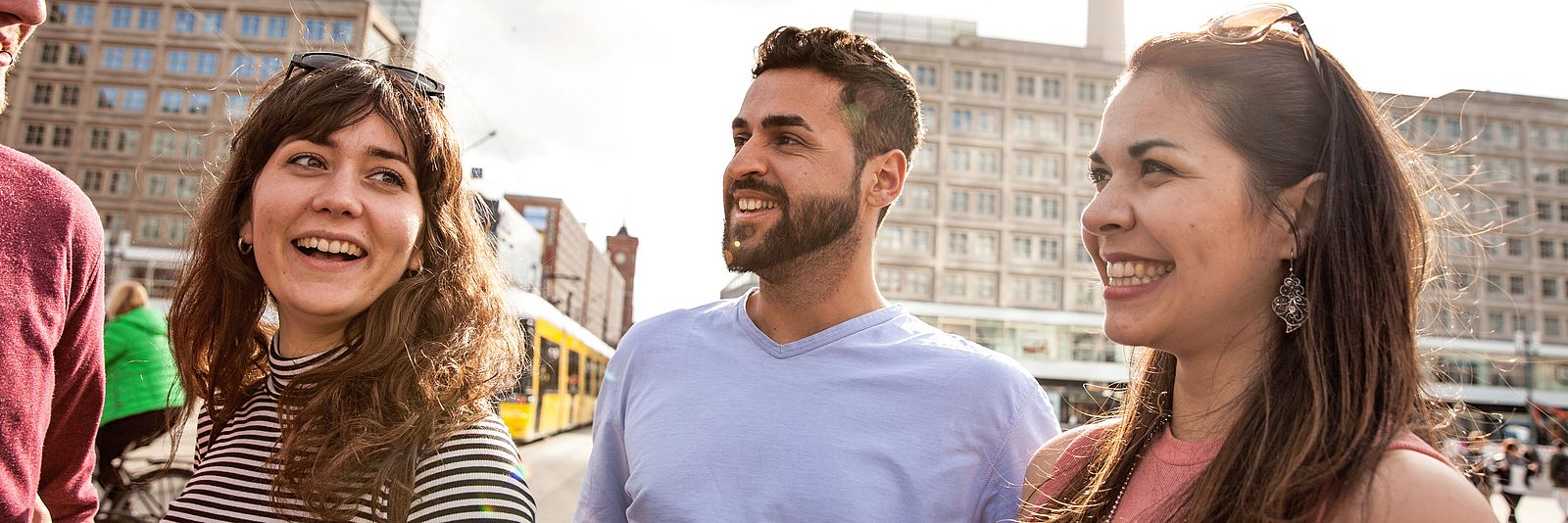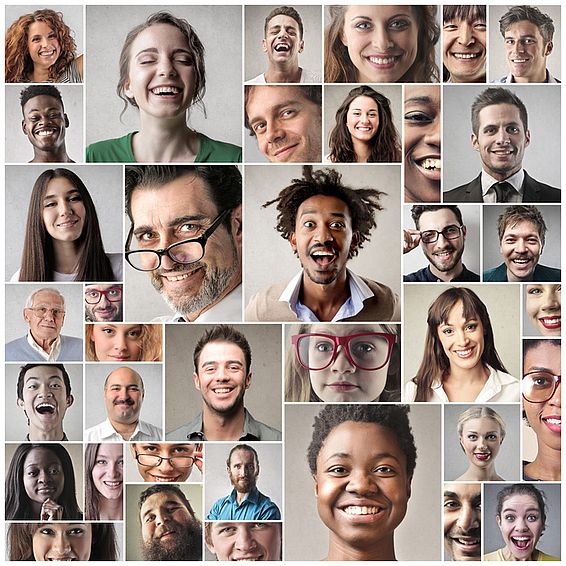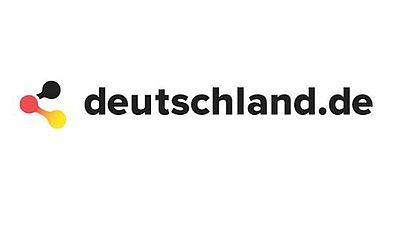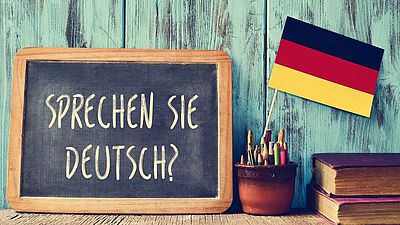
German society
Would you like to learn more about Germany, its culture and its people? Here you will find information about the German society.

A diverse and cosmopolitan culture
The impression Germany leaves on many visitors is cosmopolitan, culturally diverse and attractive. This is especially true during major events, such as the 2006 FIFA World Cup. The official motto back then was “A time to make friends”. Many of those who visited during the World Cup were genuinely surprised at how friendly, interested and outgoing the people are in the European Union’s most populous country. They saw that Germans focus on more than just economic success; they also place a high priority on family, friends, and time away from work. Moreover, they realised that the vast majority of German people, both young and old, continue to reflect upon Germany’s National Socialist past and the country’s division until reunification in 1990. This process of coming to terms with the past has given rise to a living culture of remembrance and to deep-rooted values such as social solidarity and respect for diversity.
It's little wonder that Germany has long been a country of immigration. Some may find it surprising, but the demographics paint a picture of a vibrantly diverse society. Around 83.5 million people live in Germany. Nearly 12.9 million of them hold a foreign passport – more than in any other of the 27 member states of the European Union. Including those who have subsequently acquired German citizenship – although born abroad or to immigrant parents in Germany – about 24.9 million people in Germany have a migrant background. In other words, practically a third of the people living in Germany have foreign roots.
Although this growing cultural diversity poses certain social and political challenges for Germany, it also provides an opportunity to forge a new and auspicious form of coexistence in the very heart of Europe.
Germany’s appeal and its opportunities for advancement
Why does Germany attract such a large number of immigrants? Evidently, word has spread of the diverse opportunities, good prospects and interesting jobs on offer here.
Practically all of the larger German cities feature a rich and vibrant mix of nationalities – a veritable melting pot of different cultures, languages, and religions. In 2020, the German city of Aachen was the most popular destination for foreign immigrants, followed by Düsseldorf and Hamburg. The international financial centre of Frankfurt is also among the top ten cities. Nevertheless, scientific centres also attract people. For example, Karlsruhe, one of Europe’s most important centres of information and communication technology, attracts a continuous flow of immigrants from all over the world.
Immigrants to Germany play a major part in the country’s achievements and its improved image. Many people with a migrant background have become highly successful in Germany, pursuing careers as managers, engineers, entrepreneurs, lawyers or doctors. Others are employed as skilled labour in industry or in the restaurant trade. Others have gone into film, like Fatih Akin, a famous director of Turkish descent, or have entered politics, like Cem Özdemir from the Greens. In the world of football, too, a multicultural generation has now come to the forefront. Rather than being of exclusively German origin, the players in today’s national team have Polish, Swedish, Turkish, Bosnian, Brazilian, Ghanaian, Nigerian or Tunisian roots.
One of the reasons why Germany has become pluralistic in so many areas of life is that opportunities for migrants to participate in society are better than ever before. This is also a reflection of Germany’s rigorous implementation of equal rights and participatory rights, and the high respect that these values enjoy here. These rights apply to all social groups and are explicitly stated in Article 3 of the Basic Law.
Wealth, legal security and freedom of religion
In a list of the “world’s top 10 most liveable cities”, compiled by the consulting company Mercer, the German city of Frankfurt is among the entries. The ranking is based on the criteria of political stability, criminality, economic conditions, individual freedom, press freedom, healthcare, the schooling system, housing, pollution and leisure facilities.
Germany can lay claim to being a host of social achievements, and these are prized by many people, irrespective of gender, age or origin. Such achievements include the country’s political and economic stability, its caring society with a range of social safety nets, its respect for freedom of opinion and religion, its system of comprehensive and affordable healthcare, its maintenance of the rule of law, the powerful role played by nongovernmental organisations and trade unions, and the great importance attached to education. At the same time, Germany is one of the most peaceful countries worldwide. The country has seen no social or political unrest for many decades now.
As a country of immigration, Germany is also home to a wide range of religions.
People from very different religious backgrounds are to be encountered on a daily basis. Freedom of religion is highly valued in Germany. It is stated in Article 4 of the Basic Law:
(1) Freedom of faith and of conscience, and freedom to profess a religious or philosophical creed, shall be inviolable.
(2) The undisturbed practice of religion shall be guaranteed.
46 percent of Germany’s inhabitants are Christians and are members of either the Roman Catholic Church or the Evangelical Church in Germany. Islam, which accounts for almost five per cent of the population, is the third-largest religion in Germany. In addition, Germany has over 70 other religious communities. About 46 percent of the population do not belong to any denomination.
Diverse range of cultural and recreational activities
Germany also offers a diverse and attractive range of cultural and recreational activities. There are tens of thousands of sports clubs covering all kinds of disciplines, such as football, handball and tennis. Anyone can join one of these clubs, which generally offer inexpensive means of practising an individual or team sport as well as meeting people with similar interests. Lovers of literature have numerous libraries to browse through in Germany. Libraries also regularly offer cultural events, such as readings or talks, which you can attend for free or for a modest admission price. If history or art is more in your interest, you can choose between many museums nationwide. For musical activities, there are various music schools teaching singing, dancing or instruments. If you are interested in attending a music school, you should enquire about the cost of lessons, as they can vary from school to school. Moreover, the Volkshochschule (adult education centre) offers a diverse course programme. If you are interested in new languages, culture, society, creative courses or a new sport – at the local Volkshochschule everyone is welcome. There are no qualifications required to take part in a course and the course fees are quite affordable. Under certain circumstances, you can even get a cost relief. Get information at the local Volkshochschule about the latest range of courses.
Information on the web
- Volkshochschule Find a local course which matches your interests
- Alumniportal Deutschland Current happenings in Germany
- Federal Ministry of the Interior and Community Religion and the state
- Handbook Germany Living in Germany as LGBTIQ
- German Road Safety An overview of the most important rules of the road in Germany
Do you have any questions?
Let us advise you on your opportunities to work and live in Germany. Our experts will support you with questions regarding job search, visa, recognition and learning German.
You can find out more about the various contact options by clicking on one of the icons in the bar below.


